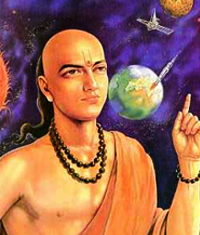
If there is one aspect of science, which still invokes interest in all of us humans cutting across age, gender, geography and culture, it is TIME.
As man grew in civilization, the necessity for developing a framework for time-keeping increased and he relied on planetary movements to compute and calculate time and then eventually come out with a calendar.
Though there are different calendars in practice for many centuries, standardizing one calendar across cultures and geographies always remained a challenge as every culture has its own days of importance / reverence.
As one of the ancient civilisations, Hindus too evolved a calendar dating back to several millennia, based on Solar and Lunar movements (Lunisolar calendar). References in Vedas show that the knowledge of chronology (science of time) and chronometry (scientific measurement of time) existed even during Vedic times.
The basic unit of our calendar starts with Nimisha (which is called as “seconds” in the current system of measurement of time), then to Kaashtai to Muhurtham to Nazhigai to a day to paksham to month to ruthu to ayanam to year to Yuga extending upto Manvantram and ultimately to Kalpa.
The length of a year on Earth is defined by the time it takes for earth to complete a full orbit around the sun in its axis. As per Hindu calendar, during this one year period, six seasons occur (as opposed to 4 seasons mentioned in the western calendar). Modern science says that the earth’s rotation starts with Spring equinox, the day on which the sun shines directly on the equator and the length of night and day are nearly equal. This season as per Hindu calendar is Vasanta Rutu, which marks the entry of Sun to Mesha Rashi and denotes prosperity.
Hindus calculated this long back and hence commenced their year during this period. Depending on the agricultural harvest season of their respective geographies in Bharat, Hindus started following Lunar calendar (Chaandramaana) and Solar calendar (Sauramaana). The difference could be a few days, but the basic foundation and concept of new year is the same – i.e., Vasanta Rutu, which is called Spring Equinox as per modern calendar.
Hindus observe all days of importance in their lives – be it birth, naming ceremony, marriage, griha pravesam, Shrarddha Tithi, etc., all based on Hindu calendar. None of these are observed based on western calendar, as it is very clear that the western calendar (Gregorian) has no role to play in our lives. Gregorian calendar is merely a mechanism of convenience to have a calendar worldwide only for administrative purpose. Beyond this, there is no sanctity and relevance of the Gregorian calendar in the life of a Hindu. Every other culture has its own calendar and observe the days of reverence as per their calendar.
While this is the case, one wonders the need and the anxiety of Hindus to greet each other on the New Year as per Gregorian calendar, which has got no significance at all for them. This anxiety has morphed into vulgar celebrations, which are totally alien to our culture and offering special prayers at temples on January 1.
Hindus need to be clear on their roots and scientific practices and abhor empty baseless rituals. New Year of Hindu is still 3 months away and they can celebrate it with gaiety and divinity.
Thu Dec 31 , 2020
VSK TN Tweet J&K PDP leader Waheed Ur Rehman Para paid Rs 10 lakh to terror outfit Hizb-ul-Mujahideen to ensure its support ahead of the 2019 Loksabha polls, NIA found in its investigation. Para was arrested days before the Jammu and Kashmir District Development Council elections since there was evidence of […]


